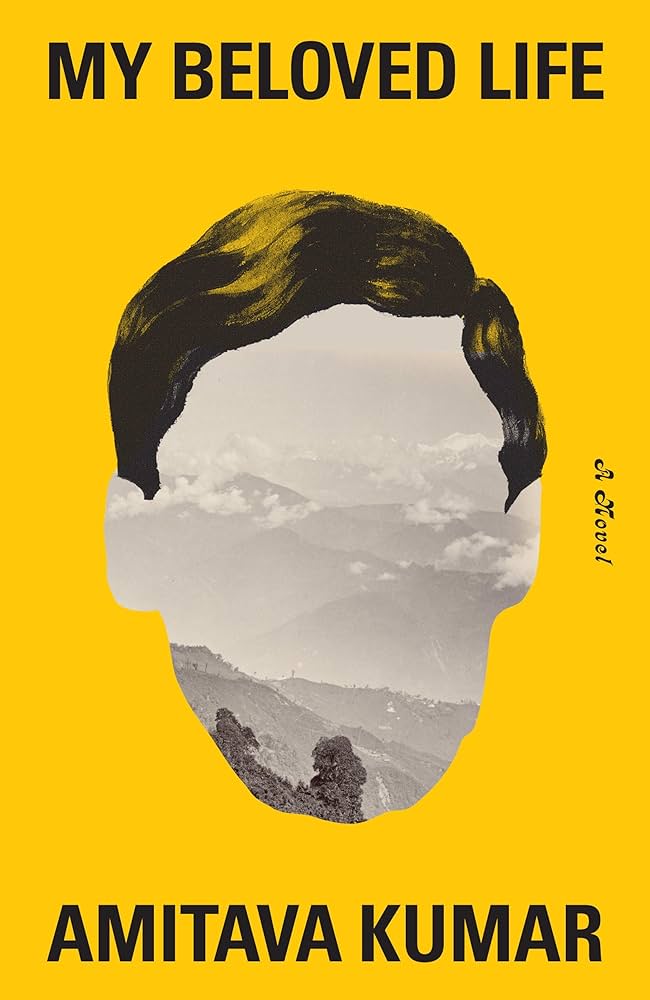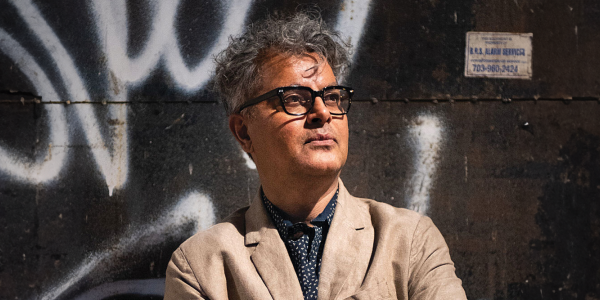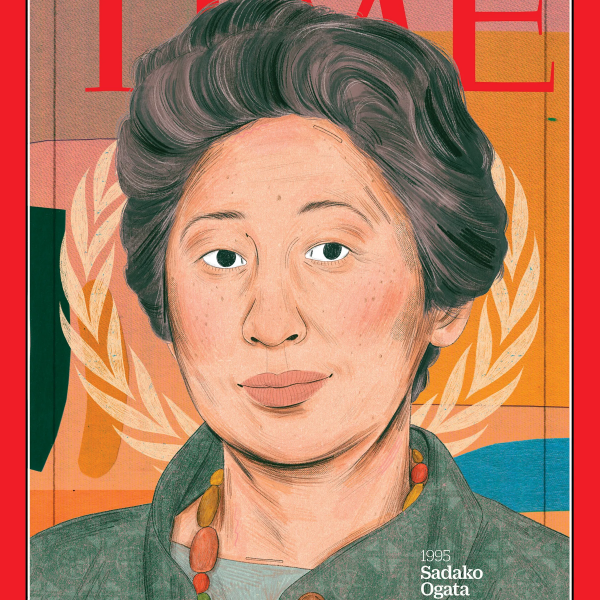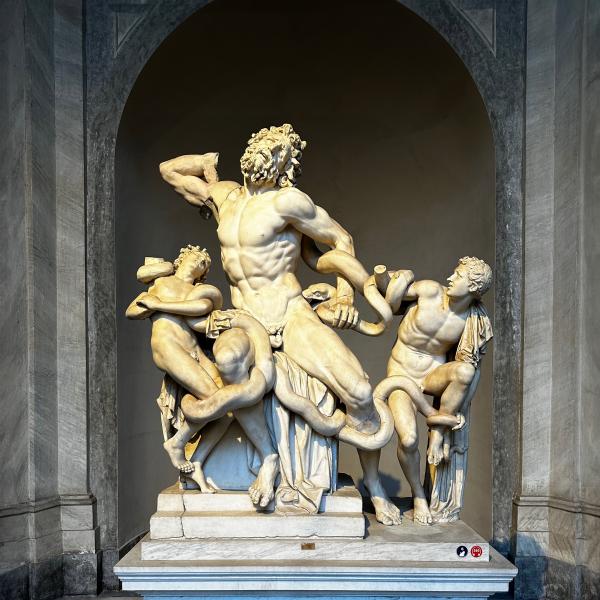Jey Sushil is a PhD student in the Program in Comparative Literature, Track for International Writers. His research interests include postcolonial studies and world literature.
Celebrated author Amitava Kumar describes himself as an “in between” writer — one whose fiction and nonfiction works explore themes of migration, history and memory on the local and the global scale. Born and raised in India and now based in the U.S., Kumar situates himself between these two literary and geographic poles. At the local end, there are writers like Vinod Kumar Shukla, who mostly reads in Hindi and whose writing has a kind of purity that seemingly remains unmarked by globalization. At the other extreme is Pico Iyer, who has written of boarding a plane in L.A., getting off a few hours later in Jakarta, checking into a Hilton, ordering a cheeseburger in English and paying for it all with an American Express card. As an “in between” writer, Kumar tries to stay true to his provincial past while also negotiating the perils and privileges of his cosmopolitan present.
On a recent visit to Washington University, Kumar talked with PhD student Jey Sushil (Program in Comparative Literature) about his most recent novel, My Beloved Life (praised by Salman Rushdie as “extraordinary”), writing for Indian as well as western readers and why a carefully curated bookshelf could improve your writing.

Your new novel, My Beloved Life, is a story about an ordinary man, Jadunath Kunwar, who comes from a village and becomes a historian in Patna. Normally novels have a hero who does something extraordinary, or some important events occur in the story. Is it a move on your part to tell the story of an ordinary man?
There is a story by Jhumpa Lahiri called The Third and Final Continent, which is about a man who arrives in this country on the same day that the American astronauts have landed on the moon. As he is drifting off to sleep, the man thinks that the distance he has crossed, the journeys he has undertaken, might not be as extraordinary or as special as what the astronauts have done, but it too is impressive and even bewildering to him.
I am using that as an example to say to you that I always had this thought in my mind: Don’t the ordinary people in this world deserve a narrative of their own? What is ordinary conceals the wonder of life. The very fact that you and I here talking in this space is both ordinary and magical. What has brought the two of us here? We were born a few hundred miles from each other, and we have our own particular histories, but here we are sitting down having this conversation here in St. Louis. There is a story here, too.
Salman Rushdie has called your novel “extraordinary.” Going back to Rushdie’s idea of history and entanglement of individual — which can be seen in his novel Midnight’s Children, where the character Salim Sinai has a central role in historical events of India. Sinai’s birth and life coincides with India’s independence and other events in the Indian history, where he is the main player. In your novel there is history, but the character (Jadunath) doesn’t have a central role in it.
Yes, the person doesn’t have a central role or is not dictating the history.
But he is part of the history…in a subtle way.
[Nodding] There is an aspiration on his part at times, at least in one instance, to be a witness to history. He wants to write, because George Orwell was born in the same town as he was. He also wants to write a book that has inspired him, but he does not, or at least it does not get published. That, too, was important for me. The truth of the matter is that people all over the world — when we think of the vast majority of the human population — are in touch with failure, not with what might be called success. We celebrate in our newspapers and in programs about people who have succeeded. My novel pays attention also to those who struggle, who fail, who do not achieve success or fame.
You always refer to western authors in your novel. There is a mention of Somerset Maugham in My Beloved Life, and in your other novel, Immigrant Montana, you have a long paragraph about William Wordsworth’s “daffodils” poem. Is that because you want western audiences to connect with your work?
In all my novels, writers are mentioned, and not just western ones. In My Beloved Life, for example, I invoke Indian writers like Agyeya, Nagarjun, Muktibodh, Mahadevi Verma, Firaq Gorakhpuri…
Somerset Maugham was a popular writer in the colonies. I read him in India. My goal in mentioning George Orwell is to lay a certain claim on him, to say that this person who you have thought of as an iconic English writer has his origins in the East and, more than that, the circumstances of his birth are tied to colonial designs of the British in India and China. Orwell’s father was an opium subagent for the British in Motihari.
Do western readers get the references you make to Indian authors? Are you trying to educate your western audience about Indian authors?
No, I don’t have that purpose in mind. I am not educating anyone either in America or India. When Jadu is a boy, an elephant is brought to the village, the mahout [riding atop the animal] looks like a sadhu [ascetic]. That’s a reference to Vinod Kumar Shukla’s novel in which there is an elephant. Now, I’m not trying to tell anyone anything. It is for me only a way of paying homage to Vinod Kumar Shukla. I don’t care whether Indian or western readers notice it. I am a writer who just wants to be in conversation with writers I like and admire.
In your lecture at Washington University, you shared a collection of tips on writing. Can you elaborate on this one? “A bookshelf of your own. Choose one book, or five, but no more than ten, to guide you, not with research necessarily, but with the critical matter of method or style.”
Whenever you are writing a book, stylistically, there is a voice in your head. There is a particular tone in your writing. So, you should have a book or books whose voice matches the voice in your head. In my novel, the idea of telling an ordinary story came to me from a novel called Train Dreams by Denis Johnson. That book was on my shelf. But I was also trying to write the story of another generation, another woman, and Akhil Sharma’s book An Obedient Father had appealed to me and I had it on my shelf. The book you are trying to write is like a tent that covers you. The six books I want you to have are the pegs that you drive into the tent to keep it in place so that the wind does not blow it away.
Note: Amitava Kumar’s tips to writing can be read here: https://lithub.com/ten-rules-of-writing/.




